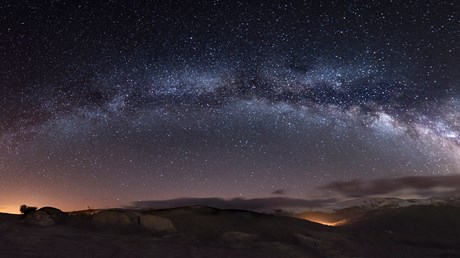Looking at the stars is always humbling. Wrong understandings of their movement are even more so.

As a teenager, I frequently climbed on top of my dad’s shop to look at the stars. When I looked upon a clear, unobstructed night sky, it was as if the starry hosts engulfed me. The lights making their slow dance across the heavens gave a perspective of existence that is hard to find elsewhere. It compelled me to reflect on how big God is and how truly small I am.
Due to centuries of observations, ideological struggles, and successful scientific endeavors, we know quite a bit about the starry hosts. We know that the universe is vast—that there are billions of galaxies with billions of stars and planets each. And we know that Earth rotates at about 1,000 miles per hour and revolves at a speed of 70,000 miles per hour around the sun. None of this, however, is obvious from an Earth-bound perspective.
If I were to go back in time to before the 1600s, though I would be looking at the same starry hosts, I would understand the universe differently.
In the early 1500s, a Polish astronomer developed a theory that changed the way we see the universe. The theory was so controversial that Nicolas Copernicus resisted publishing it until right before his death. What was this contestable idea? Copernicus conjectured that the sun, not Earth, was at the center of the solar system.
Before Copernicus’ theory became popular, most scientists claimed that Earth was at the center. The idea is not as silly as it seems. Even if the theory ultimately turned out to be false, ancient scientists based their ideas on many complex, reasonable explanations.
Suppose you are in the Northern Hemisphere stargazing, and you look up and see the Big Dipper. You will notice the constellation of stars making a counterclockwise, circular motion around ...
from
http://feeds.christianitytoday.com/~r/christianitytoday/ctmag/~3/mfn-PQ2SMXQ/cosmos-is-vaster-than-ancients-imagined.html
No comments:
Post a Comment